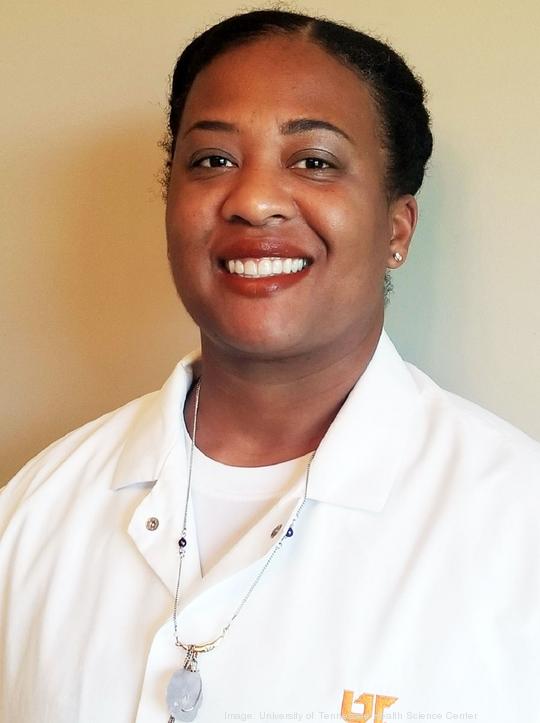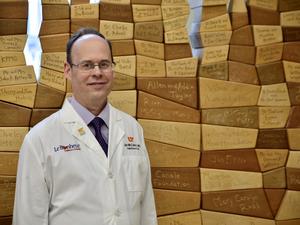
In a century’s worth of drug approvals, only four sickle cell disease treatments have received Food and Drug Administration (FDA) approval.
A University of Tennessee Health Science Center (UTHSC) researcher hopes her work will help increase that number.
Athena Starlard-Davenport, Ph.D., was awarded a three-year, $900,000-plus National Institutes of Health (NIH) grant to serve as principal investigator on the project titled “MicroRNA-based epigenetic approach to induce fetal hemoglobin.” This is her first national grant award.
She initially applied for an NIH grant in 2017 and received funding on the second attempt. At UTHSC, she is an assistant professor of genetics, genomics, and informatics in its College of Medicine.
Starlard-Davenport and her collaborator at UTHSC, Dr. Patricia Adams-Graves, started research on fetal hemoglobin induction in 2016, using seed funding from UTHSC’s CORNET award program.
The goal of CORNET is to produce research with the potential to obtain national grant funding from organizations such as the NIH.
“Those collaborative research grants increase the chance of getting funding for an RO1 [NIH Research Project Grant] like I did,” Starlard-Davenport said. “It was very instrumental in getting this grant.”
A fellow investigator on the award is Dr. Betty Pace. She is chair of pediatric hematology/oncology at Augusta University, and through the PRIDE program she mentored Starlard-Davenport.
The NIH National Heart, Lung, and Blood Institute’s PRIDE program helps launch the research of junior underrepresented minority faculty.
“I would meet [with Pace] every two weeks to talk about research and troubleshoot work-life balance — different areas of being a junior investigator — as a woman, a scientist, and an African-American woman scientist at that [which] is very rare,” Starlard-Davenport said. “Having someone who can serve as a mentor to be that support system is critical.”
Other investigators on the NIH grant include UTHSC’s Adams-Graves, a hematologist at Regional One Health’s Diggs-Kraus Sickle Cell Clinic; Dr. Ken Ataga, director of UTHSC’s Center for Sickle Cell Disease; Daniel Johnson, Ph.D., director of UTHSC’s Molecular Bioinformatics Center; and Dr. Biaouri Li, a professor at Augusta University.
More than 100,000 in the U.S. have sickle cell disease, and one in 13 African Americans are born with the sickle cell trait, according to the Centers for Disease Control. Sickle cell disease can cause severe pain and an increased risk of organ failure and death.
The cell mutation causing sickle cell disease causes adult hemoglobin to be abnormal; hemoglobin in the first year of a child’s life is normal even with the disease trait. Reversing the switch in hemoglobin is the focus of Starlard-Davenport’s research, with a focus on the miRNA29b small molecule.
“With this molecule, we are trying to turn back on fetal hemoglobin and increase levels of it for prolonged periods of time,” Starlard-Davenport said. “That way it can be used as a treatment for sickle cell disease similar to hydroxyurea, which is FDA-approved to treat sickle cell.”
The Starlard-Davenport-led research project will test blood from sickle cell patients to see if the molecule helps express fetal hemoglobin, with a long-term goal of developing a new drug candidate.
“Memphis is a great place to study sickle cell disease not only due to the research that's being done here but also because more than 60% of the population is African American,” Starlard-Davenport said. “You probably know someone who has sickle cell disease or suffered from it.”









